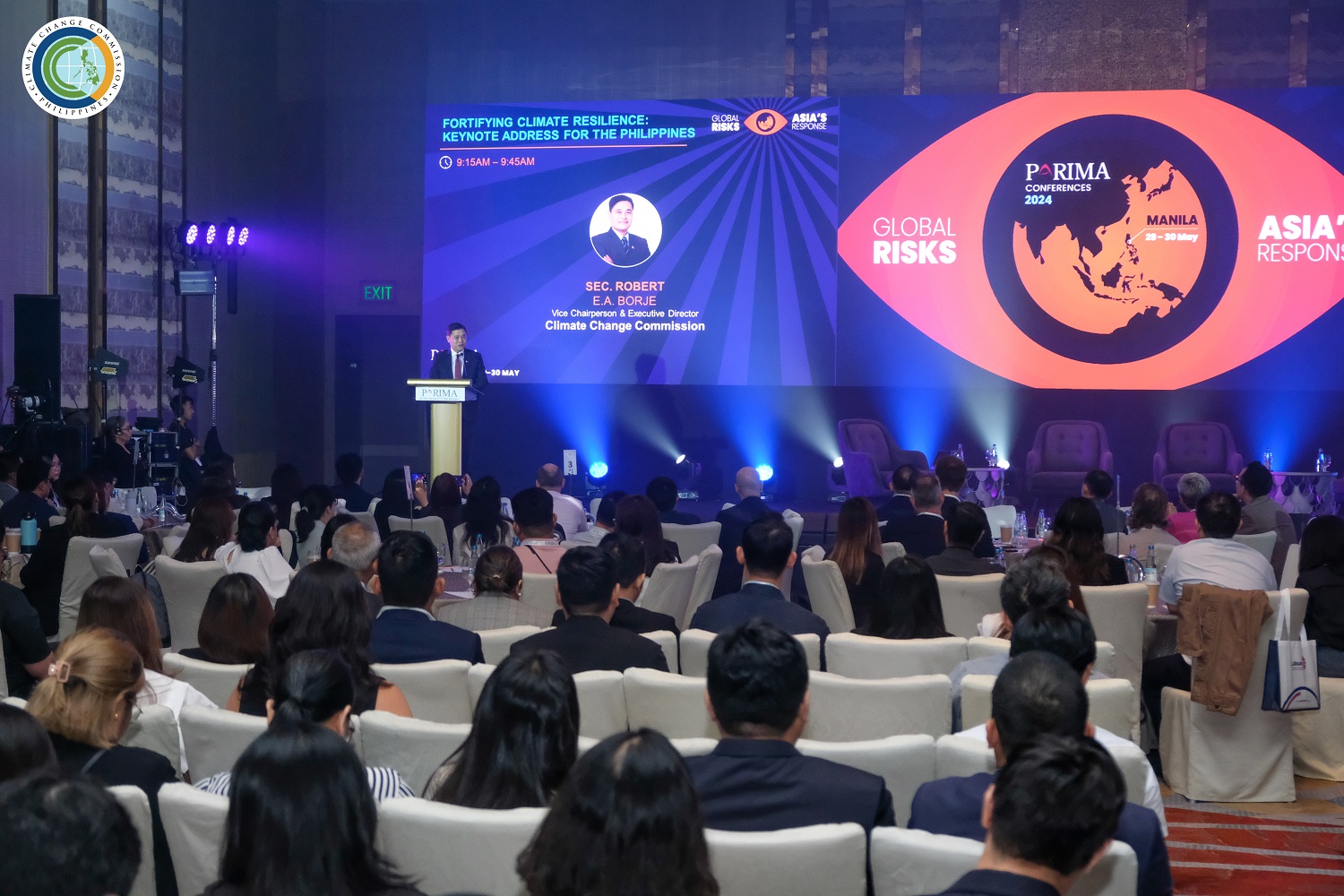
June 03, 2024 Monday

The Climate Change Commission calls for enhanced risk avoidance measures at the Pan-Asia Risk and Insurance Management Association Conference.
MANILA, 3 June 2024 — The Climate Change Commission (CCC) emphasized the crucial role of the private sector in strengthening the Philippines' national risk management capacities and stressed the importance of enhancing risk avoidance measures during the Pan-Asia Risk and Insurance Management Association (PARIMA) Conference in Manila on May 30, 2024.
The CCC emphasized the need for effective collaboration with the private sector to build a resilient nation and Asia-Pacific region capable of withstanding and addressing the escalating impacts of climate change.
In his keynote address, CCC Vice Chairperson and Executive Director Robert E.A. Borje emphasized the importance of the private sector in risk avoidance, stressing the necessity for a proactive approach to the impacts of climate change and alignment with the government’s policies and frameworks.
Borje underscored the need at the outset to work together on and invest in preventive adaptation to minimize risks related to climate change and its impacts.
While recognizing insurance as a risk transferring approach that can be supported, Borje noted the continuing importance of public and private partnership to invest in national and localized efforts for resilience.
“The private sector's role is not just in transferring risk through insurance but also in investing in preventive measures. This includes infrastructure upgrades, adoption of sustainable practices, and promotion of awareness about climate risks,” Borje added.
The Philippines has incurred significant losses and damages amounting to Php 673.3 billion over the past decade due to tropical cyclones alone – more than twice the total premiums collected by the insurance industry – highlighting the urgency for innovative solutions and stronger risk management strategies.
To address this, the Philippine government has established various policies and programs, including the National Climate Risk Management Framework (NCRMF) and the Philippine Development Plan 2023-2028, which integrate risk assessment, capacity building, and sustainable finance mobilization from both public and private sources.
Furthermore, the draft National Adaptation Plan (NAP) and Nationally Determined Contribution Implementation Plan (NDCIP) emphasize insurance as a key strategy for enhancing resilience in agriculture, fisheries, and food security sectors. The plans aim to enhance climate insurance in the country, ensuring coverage against extreme weather events.
Borje called for a multi-pronged approach to climate action, urging the private sector to develop innovative insurance products, engage in public-private partnerships, and invest in resilience projects.
“While the government has instituted measures to manage these risks, the scale and complexity of the challenges demand a collaborative approach. We need your expertise, resources, and innovative solutions to enhance our risk transfer mechanisms and build a resilient nation,” Borje stressed.
PARIMA is a professional organization dedicated to advance the practice of risk management and insurance in the Asia-Pacific region, supporting risk managers through education, networking, and the sharing of best practices. It provides a platform for risk professionals to connect, collaborate, and enhance their skills in managing various types of risks, including those related to finance, operations, and strategic management.
The CCC remains committed to support Filipinos in adapting to climate change challenges by promoting climate insurance and partnering with the private sector to foster a climate-resilient and climate-smart Philippines, ensuring continuity for individuals and businesses in the face of climate change-induced disasters.
For more information on the CCC’s climate mainstreaming activities, visit www.climate.gov.ph and www.facebook.com/CCCPhl.